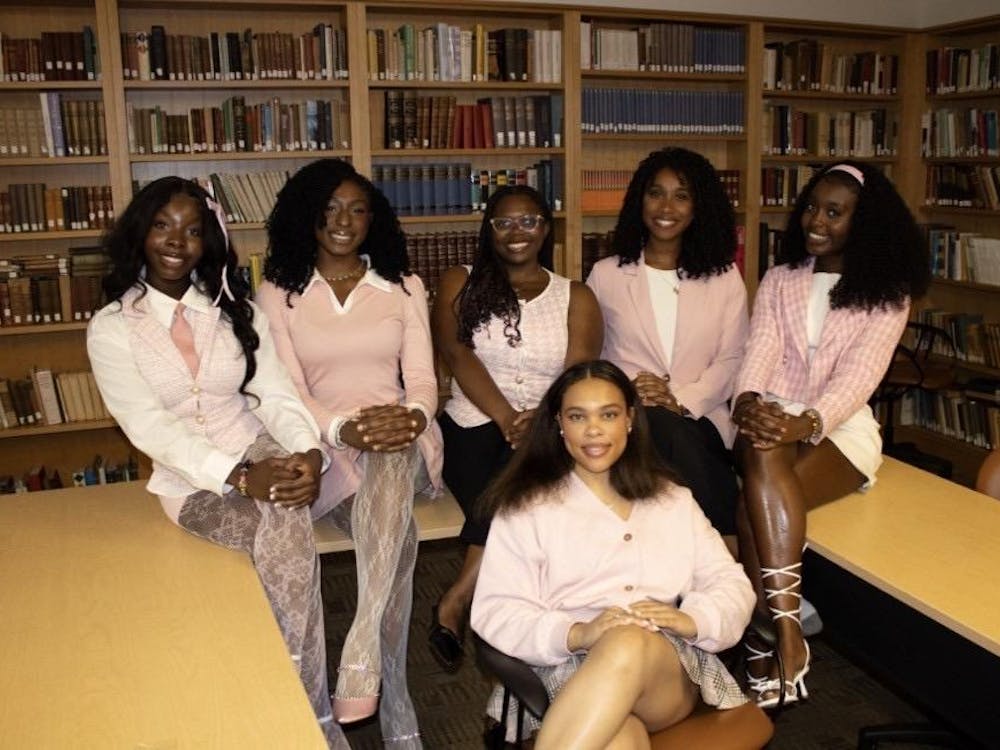I’ve always wondered what reaction I’d be met with if I offered to pay for a guy’s drink at a bar.
It’s become a well developed and heavily romanticized image in my head. I’d watch an effortlessly attractive potential suitor work his way to the counter and order himself a Bourbon-Coke (that’s something guys drink, right? I went with Bourbon because scotch seemed a little Mad Men-y for an undergrad). Just as he reaches for his wallet in the back pocket of his khakis, I let my blue MasterCard glisten purposefully in the dim lighting, and execute a perfectly delivered and overwhelmingly charming, “It’s on me.”
I also think I might wink, but I go back and forth on that one.
In my mind, he’d be totally into it, and we’d chat long into the night after finding we share a common affinity for Littlejohn’s and obscure Netflix documentaries. He’d have pretty eyes and would tell me I have a great personality.
To be honest, though, something tells me things wouldn’t play out so successfully. I once insisted on paying for a guy’s meal at the White Spot (where romance floats through the air in abundance, obviously). I thought it would be a nice gesture. He was decidedly underwhelmed. I haven’t yet asked whether he’d prefer a winter or springtime wedding.
It’s no mystery to me why this approach would be unsuccessful — simply, it would be an instance of extreme role reversal, a deviation from a longstanding social norm. That is, it’s considered normal for me to be the drink receiver, not the provider.
I won’t pretend that I refuse offers for free Wahoos at Boylan on feminist principle. But recently, I have been wondering whether letting a guy buy me a drink runs counter to the ideals of gender equality I advocate for. In general, I’ve been forced to confront the gray area between wanting to be seen as an equal and wanting a guy to act like a “gentleman.”
To me, a gentleman is simply someone who treats others with compassion and respect. But something about the word “gentleman,” and the connotations which accompany it, makes me apprehensive about using it.
To be clear, I’m deliberately leaving the notion of “chivalry” out of this conversation. The concept of chivalry — which refers to the moral code upheld by the medieval knightly system — is literally outdated by nature.
We like to romanticize the idea of antiquated romantic relationships. I’m looking at everyone who has ever posted a BuzzFeed article with a title along the lines of “10 Dating Tips from Your Grandpa’s Day That Never Should Have Gone Out Of Style.” Such people: a) would probably be the ones to order scotch at a bar as an undergrad and b) need to reevaluate the quality of their sources for life advice. In any case, if you ask me, there’s little appeal in engaging in medieval courting practices. Please, friends — chivalry’s time has come. Let it die peacefully.
Still, the question regarding being a gentleman remains. I sometimes find myself telling friends, “A better guy wouldn’t treat you that way,” or, “A gentleman would have handled that situation better.” But if I consider myself a feminist, can I really hold guys to such a high standard of comportment?
The answer to that question, I’ve decided, is an emphatic yes. Why? Because my definition of acting like a gentleman doesn’t hold anyone to any unreasonably high standard of comportment at all.
Being a gentleman — that is, being a considerate, thoughtful and caring person — shouldn’t be an indication of some abnormally heightened sense of social altruism. It should be a norm.
Because really, it makes sense to hope for a basic level of consideration and passion from all people, not just guys. While there’s no equivalent to “gentleman” that can be used to refer to a polite woman, I’d say we’re expected to conduct ourselves with kindness and general consideration, too.
Thankfully, accepting a guy’s kindness doesn’t mean I’m submitting to a subordinate gender role, and it doesn’t mean I can’t consider myself a feminist. Holding each other to healthily equal standards doesn’t look like me berating you for holding the door open for me because I easily could have done it myself. It looks more like me thanking you for your consideration, and next time doing the same for you.
Victoria’s column runs biweekly Tuesdays. She can be reached at v.moran@cavalierdaily.com.







